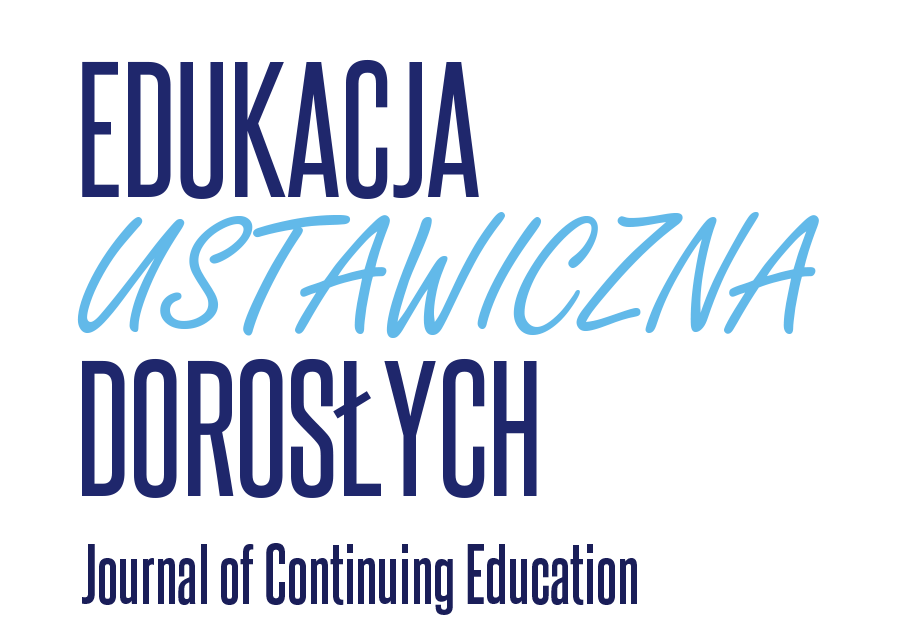Opracowanie profilu kompetencji menedżera ds. internacjonalizacji branży rolno-spożywczej ![]()
DOI: 10.34866/4416-5592
Iwona Kacak ORCID:0000-0001-5932-4585
Katarzyna Skoczylas ORCID: 0000-0002-3467-8536
Elif Yücel, Özge Güler
Developing the profile of professional, social and key competences for the position of Internationalisation Manager in the agro-food indus
Słowa kluczowe: internacjonalizacja, branża rolno-spożywcza, menedżer ds. internacjonalizacji, profil kompetencji zawodowych, badania diagnostyczne, MSP.
Streszczenie: Organizacja Narodów Zjednoczonych przewiduje, że do 2050 r. liczba ludności na świecie wyniesie 9,7 miliarda osób i wzrośnie o 25% w stosunku do 2015 r. (The future Alternative pathways to 2050 of food and agriculture. FAO, 2018). Ze względu na wzrost liczby ludności oczekuje się, że produkcja rolno-spożywcza wzrośnie na całym świecie. W UE, pod względem miejsc pracy i wartości dodanej, przemysł rolno-spożywczy jest największym sektorem produkcyjnym. Pomimo dynamizmu sektora konieczne jest dalsze jego wspieranie, aby osiągnąć jego pełny rozwój w odpowiedzi na różne wymagania żywieniowe młodych i starszych ludzi, a także różne wzorce konsumpcji, miejsca pracy i warunki życia ludności (miejskiej i wiejskiej). Rolnictwo, podobnie jak pozostałe działy gospodarki, funkcjonuje i rozwija się w warunkach kształtowanych głównie przez rynek i prawa ekonomiczne. W gospodarce rynkowej podstawowym czynnikiem rozwoju każdego sektora jest popyt na dany produkt zarówno na rynku krajowym, unijnym, jak i światowym. Wzrost potencjału przemysłu rolno-spożywczego UE będzie możliwy dzięki m.in. innowacyjnym przedsięwzięciom technologicznym w sektorze, doskonaleniu kompetencji kapitału ludzkiego i finansowaniu sektora. W pracy przedstawiono profil kompetencji zawodowych, społecznych i kluczowych dla stanowiska pracy menedżer ds. internacjonalizacji opracowanego na podstawie międzynarodowych badań diagnostycznych prowadzonych wśród przedsiębiorstw sektora rolno-spożywczego. Prace badawcze prowadzone były w ramach projektu Start-Up Internationalisation in the agriFOO D industry (SUI FOO D), finansowany w ramach programu ERASMUS+ (2019 r.). Działania projektu wpisują się w realizację celów Agendy na rzecz zrównoważonego rozwoju do roku 2030: Przekształcamy nasz świat.
Key words: internationalization, agri-food industry, internationalization manager, professional competence profile, diagnostic researches, SMEs.
Abstract: The United Nations Organisation foresees that until 2050 the global population will come to 9.7 billion people and will increase by 25% against 2015 (The Future Alternative Pathways to 2050 of Food and Agriculture. FAO, 2018). As the global population will be larger, it is expected that agro-food production will also increase all over the world. In the UE, the agro-food industry is the largest production sector with regard to jobs and added value. Despites its dynamics, its further support is required to achieve its full development in response to diverse nutritional requirements of youth and seniors, as well as to various consumption patterns, workplaces and living conditions (of urban and rural population). Agriculture, just like any other economy sector, is functioning and growing under the conditions formed mainly by the market and economic laws. In the market economy, demand for a given product on the national, EU and global market constitutes the basic factor of every sector growth. An increase in the EU agro-food industry potential shall be possible thanks to, among others, innovative technology projects in the sector, improvement of competence of human capital and sector financing. The paper presents the profile of professional, social and key competences for the position of Internationalisation Manager, developed based on international diagnostic research conducted among agro-food enterprises. Research works were conducted under the project Start-Up Internationalisation in the agriFOO D industry (SUI FOO D), funded under the ERASMUS+ programme (2019). The project actions correspond with the accomplishment of objectives of the 2030 Agenda for Sustainable Development: Transforming Our World.


